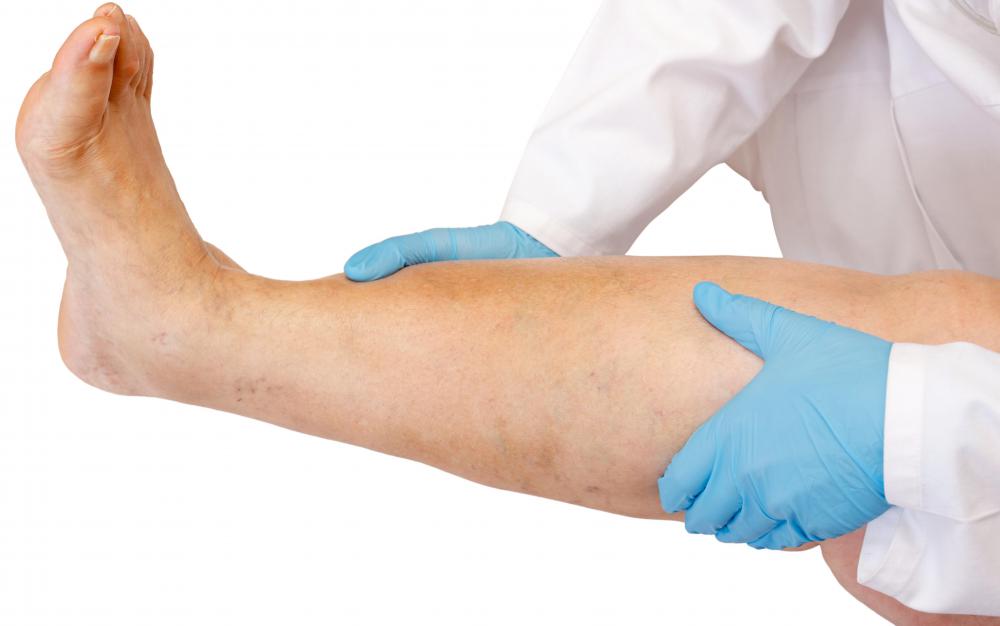At WiseGEEK, we're committed to delivering accurate, trustworthy information. Our expert-authored content is rigorously fact-checked and sourced from credible authorities. Discover how we uphold the highest standards in providing you with reliable knowledge.
What is a Nephrotic Syndrome Diet?
People who suffer from nephrotic syndrome can help to ease the symptoms of the disease by eating a special nephrotic syndrome diet. The syndrome is caused by kidneys that are not filtering waste products correctly, so adjusting the diet may help reduce kidney damage. A nephrotic syndrome diet can be low in sodium, low in fat, high in calcium or low in protein. The diet will not cure the underlying disease but can control the symptoms of the syndrome.
Nephrotic syndrome is caused by a variety of diseases that affect the kidneys. These include membranous glomerulonephritis, minimal change disease, diabetes, infections, lupus and cancer. The syndrome is characterized by high levels of protein in the urine; high cholesterol levels; low blood protein; high triglyceride levels; and swelling, especially of the feet, hands and face. Both adults and children can be affected by nephrotic syndrome.

The swelling associated with the syndrome comes from excess sodium in the body created by the kidneys' inefficient waste extraction. This symptom of the disease can be controlled through a low-sodium diet or by adjusting fluid intake. Low-sodium foods include rice, fresh vegetables, fruit, fresh meats and cereals, and high-sodium foods include processed meats, cheese and canned foods. Patients may also be advised to take diuretics to reduce the swelling.

A nephrotic syndrome diet that is low in saturated fat and cholesterol may be recommended to keep a patient's blood cholesterol levels down. High-fat foods include butter, cheese, some meats and fast food, and low-fat foods include fruits, vegetables, rice and cereals. Instead of controlling blood cholesterol through diet, a doctor may recommend that the patient take medication to reduce cholesterol. Medication is also the best way of controlling blood pressure, which is important if a patient is trying to reduce or prevent kidney damage.

Many patients with nephrotic syndrome have low calcium levels, so a dietitian may recommend a diet high in calcium, including such calcium-rich foods as milk and yogurt. A patient who has had long-term nephrotic syndrome may also be advised to take vitamin D supplements. A doctor may also recommend a nephrotic syndrome diet that is low in protein for certain patients, but a low-protein diet is not suitable for everybody with the disease. A patient with nephrotic syndrome should seek advice on a specific diet from a doctor or a dietitian, because there are a variety of diets intended to suit a variety of cases.
AS FEATURED ON:
AS FEATURED ON:














Discuss this Article
Post your comments